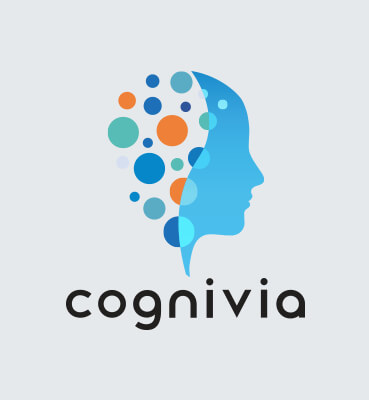Technology has enabled the accelerated transition to decentralized clinical trials (DCTs), helping many studies stay afloat during COVID-19. But this technology—particularly ePRO—can also be used to determine when DCTs are most appropriate and how the change in format may impact the patient’s behavior and response.
In this article, we will first discuss the rise of DCTs, empowered by technology like ePRO in clinical trials. Then, we will review how related technology can help mitigate the risks DCTs may pose to study data.
The Rise of DCTs
With the COVID-19 pandemic, many clinical trials moved to a decentralized or hybrid format wherever possible to avoid having to stop research.
Some trials couldn’t become fully decentralized, but those that were able to, capitalized on quite a few advantages: most notably, less burden on the patient.
In a DCT, the patient can remain home and comfortable for parts of, if not the entire, study. Going to the clinical site can be stressful for the patient, so staying at home for the various stages of the study can be very reassuring and convenient.
With a virtual visit, patients may be more comfortable reporting their experiences. This ultimately creates a better trial experience, encouraging future participation and even helping to alleviate potential issues with patient retention.
But for a successful decentralized clinical trial, sponsors and patients need the right tools to complete everything, including eICD, EDC, eDiary and tele-visit systems.
One category of technology, though, stands to provide a broader level of support and insight to clinical trials: ePRO, electronic patient-reported outcomes.
ePRO in Clinical Trials
Clinical trials are required to assess clinical outcomes to measure a drug’s effectiveness. Those outcomes fall into four categories:
- Clinical-reported outcomes
- Observer-reported outcomes
- Performance outcomes
- Patient-reported outcomes (PRO)
Depending on the disease, the FDA may ask for the use of PRO as the clinical outcome assessment. Simply put, PRO “represents the voice of the patient in drug and device evaluation.”
With electronic PRO solutions (ePRO), patients can answer questions and report their health electronically, using their smartphone, tablet or computer. This allows trials to facilitate data collection, better track study progression and monitor data quality more efficiently.
How ePRO Supports DCTs
For studies struggling with traditional challenges—patient recruitment and retention, investigator-site interaction, and biases and errors in data collection—ePRO stands to greatly benefit decentralized clinical trials.
#1. Less Burden on Study Site & Patient
Collecting PROs electronically greatly reduces the burden on both the study site and the patient. Even if the patient needs to visit the site for other reasons, the visit times end up being shorter. Again, this reassures the patient and allows the site to focus on other work essential for the trial.
#2. Better Data
In a DCT setting, patients directly enter their experiences through an ePRO solution. That means less manual data entry for clinical staff, lowering the risk for mistakes and bias. Less bias means cleaner, better data that sponsors can draw conclusions from.
On top of reducing human interaction with the data, ePRO can integrate checks to ensure that everything is completed correctly. Patients can set reminders on their devices to enter data and show up to their virtual visits on time. Plus, those checks can prompt the user if anything looks wrong in their reports, asking them to revise before entering their report.
#3. Improved Patient Engagement
Perhaps the biggest advantage of an ePRO in clinical trials is that these systems are easy to use – and when they’re easy to use, patients are more likely to fully engage with them. That means more participation and a more complete picture of their perceived experience and results.
How ePRO Mitigates the Risks of DCTs
While the advantages of decentralized trials—empowered by clinical trial technology like ePROs—are clear, changing the context of a study can have unknown consequences on trial data—especially patient-reported outcomes.
In fact, according to WCG Avoca, 25% of respondents agreed that DCTs pose risks to protocol compliance and study participant safety and privacy.
This is why the use of ePRO in clinical trials is such an important opportunity. While using ePRO can help enable DCTs, it may also be possible to use ePRO to understand if patients are changing their behavior and response in this new environment.
This may now be feasible with Tools4Patient’s proprietary cloud-based ePRO platform: unik-me.
The unik-me Platform
Unik-me was developed to allow administration of questionnaires to patients easily and seamlessly – specifically the Multi-Dimensional Psychological Questionnaire (MPsQ), which evaluates specific aspects of patient psychology.
Physical PROs are essential, but they aren’t the only thing trials need to track. How do individual patient characteristics impact the way the patient responds to and experiences the study? When unik-me is used with other clinical trial technology, studies get a full picture of each patient. With that information on hand, they can determine if a DCT format is even suitable for all participants in the first place.
unik-me is focused on being as simple as possible for the site staff and patient. That’s why remote completion is being built into the platform. This allows participants to take these psychological questionnaires comfortably from their homes. unik-me is a DCT-compatible tool that can begin to help sponsors understand how DCTs impact patients.
Using unik-me in DCTs as well as conventional clinical trials provides an additional dimension of patient data to help study statisticians to determine true drug efficacy.
Conclusion
The innovation in the industry is exciting, with new tools and trial formats opening the doors for a more patient-centric experience. But it’s important to consider how these formats may impact patient response, patient behavior—and ultimately patient data. While DCTs are a good thing—as appropriate—we shouldn’t lose sight of how this new environment may introduce new biases and noise in the data.
Luckily, we can use the same kind of tools trials use to enable DCTs to better understand each individual patient’s response.
As a partner of the Decentralized Trials & Research Alliance (DTRA), Tools4Patient is committed to better understanding patients in order to improve the efficiency and effectiveness of clinical trials. Find out how to easily incorporate unik-me in your study by getting in touch today.





